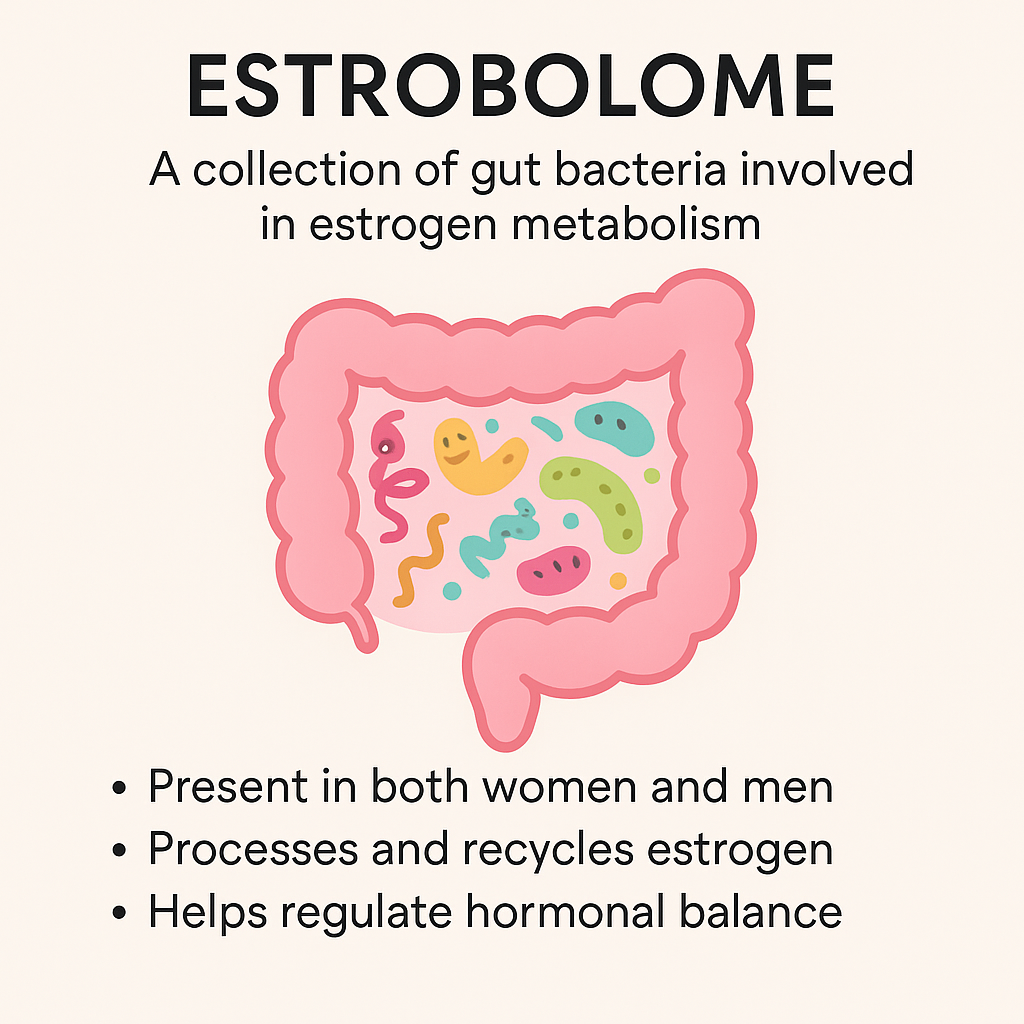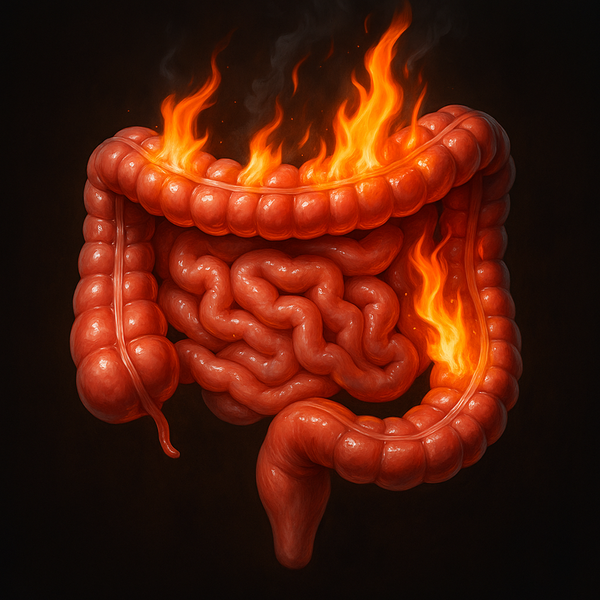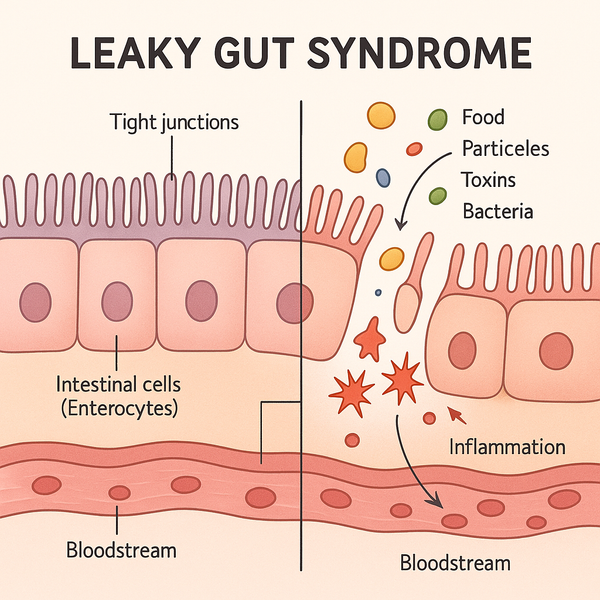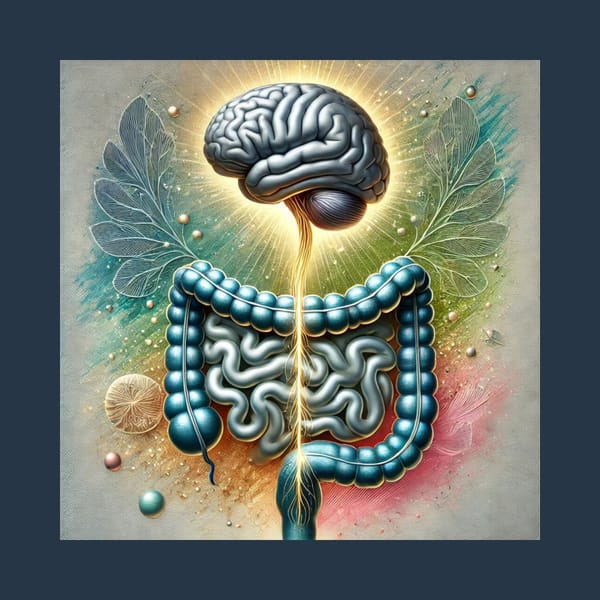July 5-The Gut-Hormone Connection (Yes, Even Post-Menopause and even MEN)
Ever heard of the Estrobolome? Me neither. Turns out it is super important.

What if your bloating, mood swings, and stubborn weight gain aren’t just ‘hormonal problems’? The real root cause might be your gut.
Gut health and hormone balance are deeply linked. Whether you’re in perimenopause, post-menopause, or somewhere in between, disruptions in your microbiome can throw off estrogen, cortisol, thyroid hormones, and insulin. And if your gut’s a mess… your hormones are too.
Your Gut: The Unsung Hormone Hero
Your gut isn’t just about digestion—it’s a hormone processing plant.
Inside your intestines lives something called the estrobolome-a collection of gut bacteria responsible for processing and recycling estrogen.
Both men and women have an estrobolome. Even though women naturally produce higher levels of estrogen, men also produce small amounts. The estrobolome helps regulate estrogen in both sexes and plays a crucial role in maintaining hormonal balance.
In men, estrogen clearance is especially important. When the estrobolome is out of balance, excess estrogen can build up, contributing to belly fat, mood changes, low libido, and even breast tissue development (gynecomastia).
When this bacterial system is balanced, it helps clear excess estrogen from the body. But when it’s not?
Estrogen dominance, bloating, PMS, mood swings, weight gain, and more can become everyday struggles—especially for women.
And that’s not all. Your gut is deeply tied to:
- Cortisol (the stress hormone)- Gut inflammation triggers more cortisol production, worsening stress and belly fat.
- Thyroid conversion- Most of your inactive T4 hormone converts into active T3 in the gut, so poor gut health can slow metabolism.
- Insulin- Blood sugar spikes worsen when gut health tanks, leading to cravings and weight gain.
- Progesterone- Gut stress can deplete progesterone, causing anxiety, insomnia, and painful periods.
What Gut Dysfunction Does to Your Hormones
Gut issues like leaky gut, low stomach acid, or slow motility can create a hormone train wreck:
- Poor estrogen clearance → symptoms of estrogen dominance.
- Thyroid downregulation → fatigue, weight gain, cold hands and feet.
- Low progesterone → anxiety, insomnia, painful periods.
- Insulin resistance → sugar cravings, weight gain, mood swings.
- Cortisol dysregulation → burnout, belly fat, hair loss.
Yes, it’s all connected. And yes—even post-menopause—your body still needs balanced hormones.
How to Support Hormones Through the Gut
Let’s clean up the gut to calm the hormone chaos:
- Nourish the estrobolome with fiber-rich foods and quality probiotics or fiber supplements to keep your gut bacteria balanced and your hormones happy.
- Ditch hormone-disrupting chemicals like plastics, pesticides, and perfumes. Consider switching to plastic-free kitchen storage, natural cleaning products, and non-toxic personal care items to protect your hormones and your gut.
- Support bile flow—healthy digestion and regular bowel movements are crucial for eliminating excess estrogen from the body.
- Heal leaky gut with powerful tools like bone broth (rich in gut-soothing collagen), L-glutamine (an amino acid that helps repair the gut lining), and zinc carnosine (which supports gut integrity and healing).
- Balance blood sugar by starting your day with protein and healthy fats instead of sugary breakfasts. Try high-quality protein powders or collagen peptides to boost your morning routine easily.
- Take essential nutrients like magnesium and B vitamins, which are critical for hormone pathways, stress resilience, and gut repair.
In Case You Skimmed
Your gut and hormones are tied at the hip.
Even post-menopause, gut health affects estrogen, cortisol, thyroid, and insulin.
And while women often feel the brunt of hormone chaos, men aren’t immune. Estrogen clearance is crucial for men too, helping prevent issues like belly fat, mood changes, and low libido.
Balance your gut- and you’ll balance your mood, energy, weight, and sanity.
Looking for More Gut & Hormone Support?
If you’re ready to take real action to heal your gut and balance your hormones, check out my Anti-Inflammatory Gut Reset. This 4-week plan gives you meal guides, recipes, and simple steps to calm inflammation, restore your gut health, and support your hormones naturally.
Small changes can make a huge difference in how you feel—every single day.
We’re no longer waiting for permission to take our health back. We are finding it ourselves outside of traditional medicine.
Jamie Shahan MSN, CRNA, RN
Empowering Holistic Health
🌐 Connect with me on Social Media:
⚠️ Disclaimer
The information on this website is for educational purposes only and is not intended to diagnose, treat, cure, or prevent any disease. The content reflects the personal research, experiences, and opinions of Jamie Shahan and should not be considered medical advice. Always consult with your healthcare provider before making any decisions about your health, especially if you are pregnant, nursing, have a medical condition, or are taking medications.
Some links on this site may be affiliate links, which means I may earn a small commission if you choose to make a purchase—at no additional cost to you. I only recommend products I use myself or would confidently recommend to someone I love



